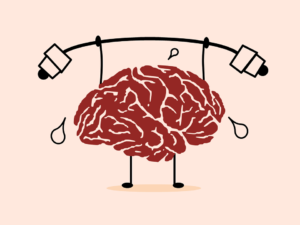What can exercise do for our mental health??
With mental health being a huge talking point throughout the pandemic there is no better time for us to touch on how exercise can help. Whether you are a regular gym user or starting your journey, we hope to inspire you to work some exercise into your day to help you feel good!
We all see exercise as a way keep our bodies in shape and maintain our physical health. It is a great way to reduce the risk of heart disease, diabetes but did you know about the effects it has on our brain and our mental health?
Exercise alone is unlikely prevent or cure mental health conditions because they are influenced by a variety of environmental, lifestyle, hormonal, and genetic factors however regular exercise is a great tool for reducing the risk of and managing symptoms of conditions such as stress, anxiety and depression.
How does Exercise Help improve my mood?
You don’t need to be experiencing persistent symptoms of stress, depression or anxiety for your brain to benefit from regular exercise. Exercise can help stimulate parts of your brain that aren’t as responsive when you’re feeling low. It also promotes the release of feel-good brain chemicals.
Exercising triggers the release Serotonin in our brain. Serotonin is an important ‘feel good’ chemical that helps improve our moods, well-being, helps us with our sleep/wake cycle and our appetite which are all things that can be negatively affected by depression.
Serotonin is used in most anti-depre ssants to help boost your mood and relieve your symptoms of depression.
ssants to help boost your mood and relieve your symptoms of depression.
Here are just a handful of the benefits of exercise on our mental health.
- Increase self-esteem.
- Ease the symptoms of stress, anxiety and depression.
- Improve sleep.
- Improve quality of life.
- Increase mental alertness.
- Give you more energy.
- Improve memory function.
- Increase mindfulness. This can provide a useful distraction from the cycle of negative thoughts that accompany depression and anxiety.
How much exercise do I need to do to improve my mental health?
The NHS recommends that adults aged between 19 and 64 should aim for around 150 minutes of moderate aerobic activity a week. Alternatively, the 150 minutes can be reduced to 75 minutes of vigorous activity, which covers jogging/running, football and fast swimming to name a few. The NHS also provide unique guidelines for early childhood, young people and older adults aged 65 and over.
There is a good change that if you are feeling low you might not feel like you have the energy to take up running or weight lifting, that is totally normal! Here are some little pointers to help you on your way…
Take a look at your everyday tasks, are you doing the school run? try walking instead of driving. When you are out and about at the shops take the stairs instead of the lift, or park a little further away. Household chores also count too! Once you add all these up you’ll be well on your way and ready to make the next step to adding other activities into your routine.
What exercise can I do to benefit?
To put it simply, any physical activity is going to help release those feel good hormones and the great thing is that there is something for everyone. Many people have taken to walking over the last year, not only is this one of the only ways we have been able to keep active but being outdoors in nature also has a positive affect on our mood.
Here are some other ways you can keep active.
- Walking/jogging/running
- Yoga/Pilates
- Weightlifting
- Resistance training
- Cycling
- Swimming

Most importantly…
If you haven’t been feeling yourself lately or are concerned about your mental health please make sure you talk to a family member or a friend about how you’re feeling. There are also a lot of amazing charities out there that are just a phone call away. You are not alone.
Here are a few links to help you.

